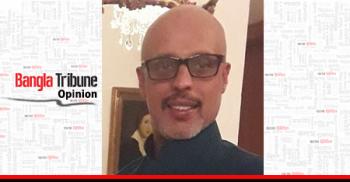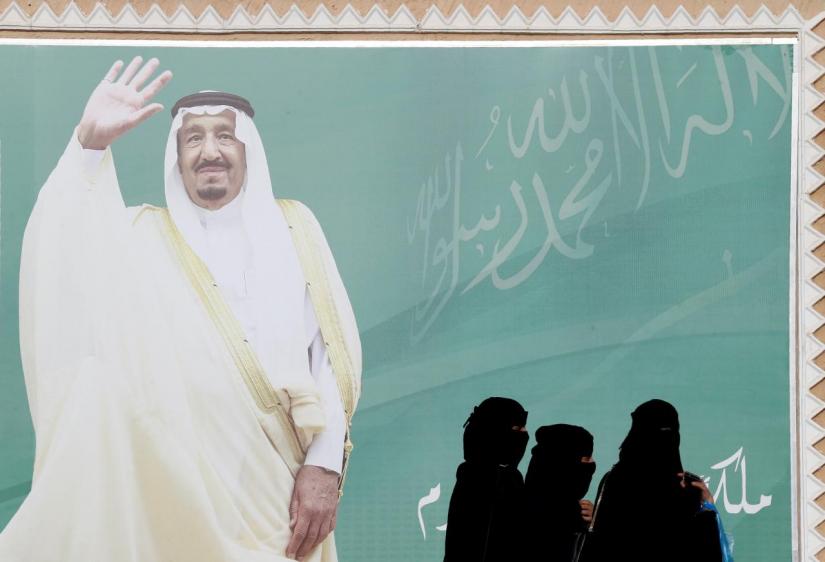 In the ongoing Asian Cup football, the game between Saudi Arabia and Qatar was something to watch and keep in mind for a long time. This was a game which showed how a battle between adversaries can be fought without weapons and with a football. There was clearly no love lost here, each side took the field with one aim only: win and give one hundred per cent to that aim.
In the ongoing Asian Cup football, the game between Saudi Arabia and Qatar was something to watch and keep in mind for a long time. This was a game which showed how a battle between adversaries can be fought without weapons and with a football. There was clearly no love lost here, each side took the field with one aim only: win and give one hundred per cent to that aim.
It does not matter if Qatar fails to win the Asian Cup, because the team beat Saudi Arabia 2-0 in a match that had much more than football glory at stake.
For Qatar, a country which is ostracised by a Saudi-led Gulf group, it was not a game but a metaphorical proof that despite the efforts of several other nations, the country goes on undaunted.
A look on the face of the Saudi goal keeper after saving a penalty and the almost primordial celebration of the Qatari forward after scoring the first goal indicates that the political tension which has estranged the gulf nation from the rest, hovered heavily over the football field.
Twenty two men actually fought a war and Qatar came out victorious! Who needs the Asia Cup, right?
Are the reforms for real?
But let’s leave football aside, and talk about Saudi Arabia – the desert nation with oil which has remained much of an enigma for too long.
For decades, the oil rich state has boldly flaunted her ultra conservative label, endorsing a moral and religious police force and barring women from driving or going out alone.
However, when Mohammad bin Salman or MBS, the crown prince, became the deputy prime minister, there was belief of reforms. He also delivered: women allowed to drive, concerts given permission plus curtailing the power of the religious police.
Yet, sometimes it seems that all these are cosmetic!
Take the flight of a young Saudi girl called Rahaf Mohammed al-Qunun, who made global headline when she tweeted from a hotel room at the Bangkok airport asking for asylum.
Obviously, a person seeks refuge in another country when there’s danger in her own. Reportedly, the girl renounced Islam and since Saudi Arabia enforces Sharia law, the punishment for apostasy is death.
Thankfully, Rahaf is now safely pursuing her life in Canada, a secular state. Maybe we should say, the only country in the world which has come forward to extend a hand of support to the embattled teenager when she was spending anxious hours in the hotel room hoping for a beacon of light.
What is important is, for Rahaf to actually open up about life for a teenager in Saudi Arabia so the world understands the actual condition of women there and the true extent of the reforms.  Do the reforms bring real changes in society? Or, are they just a charade, put up to fool the world and allow Saudi Arabia to create a platform from which she can get into trade deals with Western nations without attracting rebuke from human rights organisations?
Do the reforms bring real changes in society? Or, are they just a charade, put up to fool the world and allow Saudi Arabia to create a platform from which she can get into trade deals with Western nations without attracting rebuke from human rights organisations?
If that’s the case then the strategy works both ways, Saudis can show that positive changes are happening while the West can justify their trade deals plus weapons sales on the premise that they are now dealing with a reformer.
The opacity over Khashoggi killing mocks reforms
For argument’s sake, let’s accept that there have been some concrete transformation in the Saudi society and people are realising the need for accountability. However, the grisly killing of a dissident journalist inside the Saudi consulate in Istanbul and the attempts at obfuscation clearly show that something is terribly flawed in the kingdom.
The initial denials were from the Saudi government and only when Turkey came out with the video images, the actual macabre picture started to unfold.
The killing still hangs over the country with no proper investigation done so far. The main question as to who ordered the killing remains elusive though there have been many speculations pointing at the top people in government.
Obviously, there is so much vacillating over a gruesome crime committed overseas, the rhetoric about reforms sounds vacuous, at times implausible.
Maybe in projecting women drivers and other changes the world is getting to see what they are allowed to see, and, honestly, that’s not too much.
Let’s come to the flight of the young girl!
Note one point, she did not apply for asylum in any Muslim state but to countries where her individuality will be respected.
The sole fact that she left Saudi Arabia because of terror indicates that the changes trumpeted so far maybe skin deep.
The mistreatment of Bangladeshi maids cannot be overlooked
We go to another angle of the Saudi conundrum – the return of a steady flow of Bangladeshi women who had gone to the desert kingdom for employment. The women coming back alleged that they faced sexual abuse, starvation, mistreatment plus abnormal working shifts without breaks.
An international news channel ran a story of a Bangladeshi worker who was sent back after she was more than five months pregnant and did not know how to cope with the situation.
Women workers have been going to the Gulf states for a long period and the unsavoury truth is that many know that if the situation demands they may have to provide sexual favours.
I interviewed a female worker who lived in a Gulf state in the late 80s and she said that an unwritten part of her agreement was to provide sexual intimacy, which she did.
“The salary was regular, there was ample food and therefore, the sexual demand did not bother much,” came the candid reply.
The problem of the clandestine physical intimacy clause only came to light when the salary became irregular, sexual demands deviant with regular food curfews.
The fact that Saudi government did not launch an investigation into allegations by overseas maids shows that a suppressive society is very much in place.
It would be interesting to hear Rahaf give an account of the life she renounced because only then the true condition of women in Saudi society will become clear.
By the way, a recent repot doing the rounds on Facebook and other social media quote Saudi women as saying that they prefer outsiders as husbands to locals because the latter are tyrannical, inflexible and dogmatic.
As per the reports, Bangladeshi men are preferred the most. True or false, the core message is that if Saudi women are given a chance to actually open up their hearts, the world may get a very medieval picture with a glossed over façade.
Towheed Feroze is a news editor at Bangla Tribune and teaches at the University of Dhaka.


